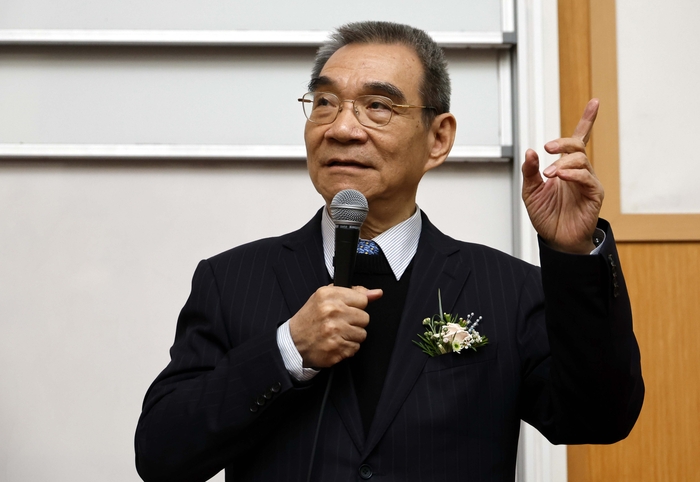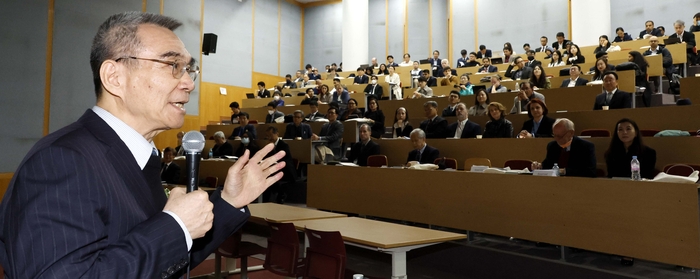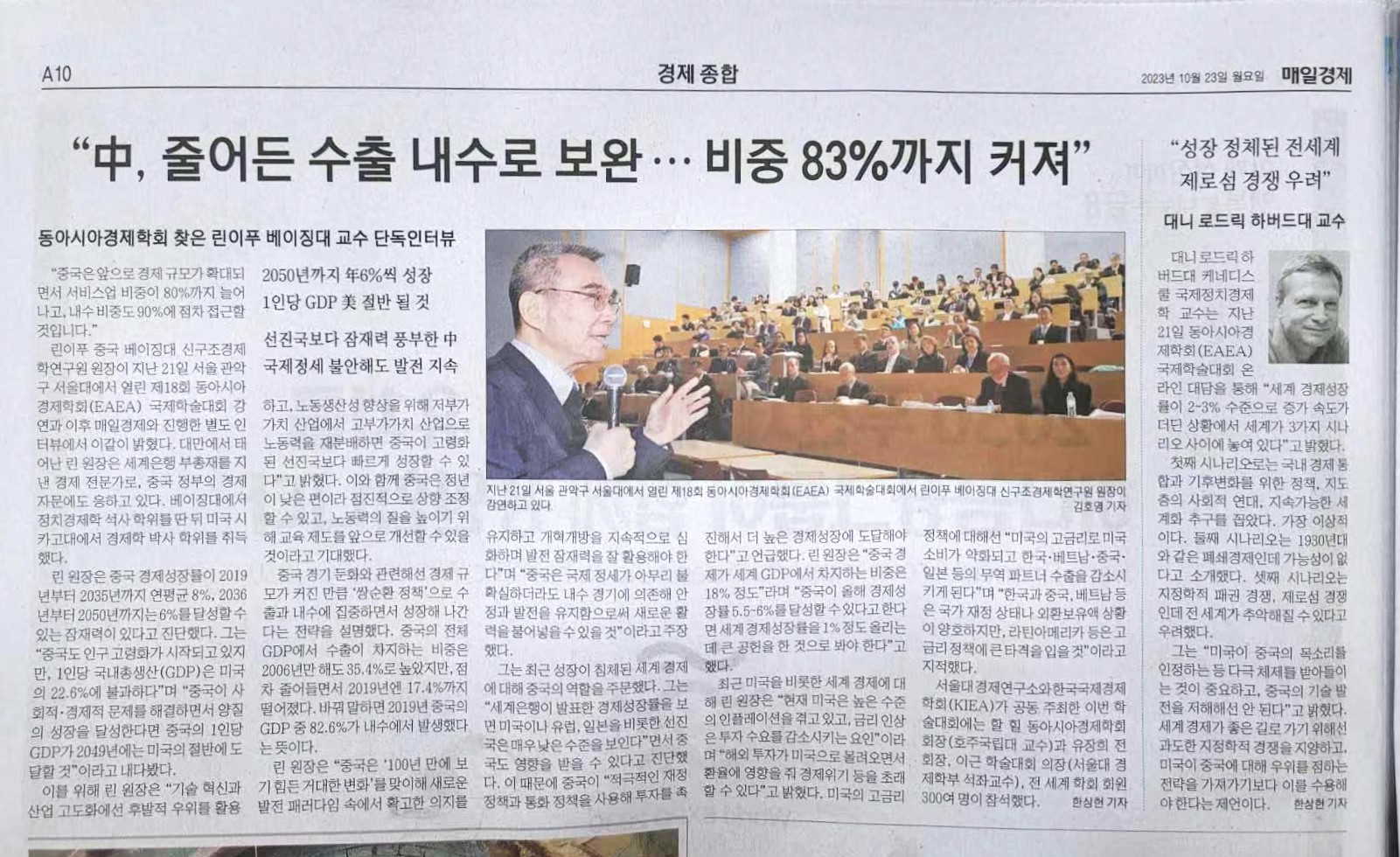英文首页﹀
Lin confident in China's economy, says it has great potential
2023-10-24

"As China's economy expands, the share of services will increase to 80% and the share of domestic demand will gradually approach 90%".
Justin Yifu Lin, Dean of the Institute of New Structural Economics at Peking University in China, said in a lecture at the 18th International Conference of the East Asian Economic Association (EAEA) at Seoul National University in Gwanak-gu, Seoul, on Oct. 21, and in an exclusive interview with Maeil Business afterward. Professor Lin is an economist who served as the Senior Vice President of the World Bank and is also an economic adviser to the Chinese government. He obtained his master's degree in Political Economics from Peking University and his Ph.D in Economics from the University of Chicago.
Professor Lin believes China's economy has the potential to grow at an average annual rate of 8% from 2019 to 2035 and 6% from 2036 to 2050. "China's population is also starting to age, but its GDP per capita is only 22.6% of the U.S. "If China achieves quality growth while addressing social and economic issues, China's GDP per capita will reach half that of the U.S. by 2049," he said.
"Leveraging its latecomer advantage in technological innovation and industrial sophistication, and reallocating labor from low-value-added to high-value-added industries to improve labor productivity can help China grow faster than aging developed countries," Professor Lin said. In addition, China has a low retirement age that can be gradually raised, and its education system can be improved in the future to enhance the quality of its labor force.
Regarding China's slowdown, he explained that the country's strategy is to focus on exports and domestic demand in a "two-track policy" as the economy has grown in size. While exports accounted for 35.4% of China's total GDP in 2006, they have gradually declined to 17.4% in 2019. In other words, 82.6% of China's GDP in 2019 came from domestic demand.

"Faced with major changes unseen in a century, China must maintain its firm resolve in the new development paradigm, continue to deepen reform and opening up, and make good use of its development potential," Professor Lin said. "No matter how uncertain the international situation is, China can inject new vitality by relying on its domestic economy to maintain stability and development."
He called for China's role in the global economy, which has seen a recent downturn in growth. "If you look at the economic growth rates published by the World Bank, they are very low for developed countries, including the United States, Europe and Japan," he said, adding that China could be affected. This is why China should "use active fiscal and monetary policies to stimulate investment to reach higher economic growth," he said. "The Chinese economy accounts for about 18% of the world's gross domestic product (GDP)," Professor Lin said. "If China can achieve an economic growth rate of 5.5% to 6% this year, it will make a significant contribution to raising global economic growth by about 1%."
Commenting on the global economy, including the U.S., Professor Lin said, "Currently, the U.S. is experiencing high levels of inflation, and the increase in interest rates is a factor that reduces investment demand." "As foreign investment flows to the U.S., it affects the exchange rate, which can lead to economic crises." "High-interest rates in the U.S. will weaken U.S. consumption and reduce exports to trading partners such as South Korea, Vietnam, China, and Japan," he said. "While South Korea, China, and Vietnam have good fiscal positions and foreign exchange reserves, Latin America will be hit hard by high-interest rate policies."
The conference, co-organized by SNU Institute of Economic Research (SIER) and the Korean International Economic Association (KIEA), was attended by Hal Hill, President of the East Asian Economic Association (Professor at the Australian National University), Jang-Hee Yoo, former President, and Keun Lee, Chairman of the Conference (Professor of Economics at Seoul National University), and more than 300 members from around the world. The East Asian Economic Association was founded in 1987 as the first international academic organization to focus on the economies of East Asia, comprising Northeast Asia and Southeast Asia.

Source:

